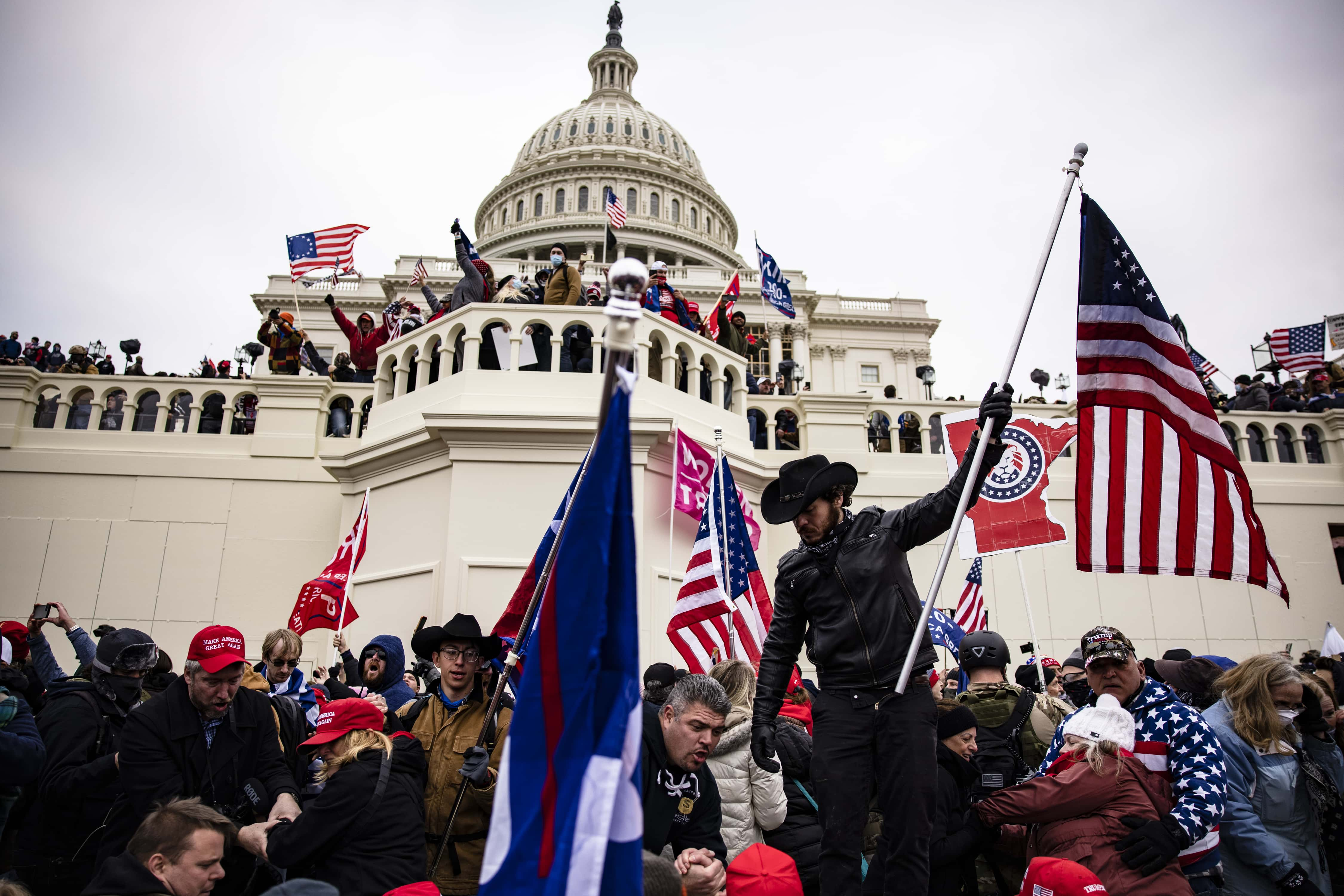Pentagon plan to monitor military personnel social media for extremism causes outrage: 'A flawed strategy'

Domestic extremism has remained a top concern for America’s political leadership since last year when race riots broke out across the country following the brutal death of George Floyd in police custody in Minneapolis. The concern multiplied in January this year when scores of supporters of former President Donald Trump stormed the Capitol to violently protest the election of Joe Biden as the new president. The incident saw a number of deaths and lives of many lawmakers were endangered, and the new administration vowed to crack down on domestic extremists.
As part of the Biden administration’s plan to strongly deal with domestic extremism, the Pentagon has planned to start a pilot program for monitoring social media content for extremism, The Intercept reported after reviewing internal defense department documents and speaking with a source having direct knowledge of the program. An extremism steering committee, which is led by Bishop Garrison, a senior advisor to Defense Secretary Lloyd Austin, is currently engaged in designing the social media screening pilot program which will relentlessly monitor military personnel for “concerning behaviors”, a Pentagon briefing said in late March.
The military has earlier balked at monitoring its service members for extremist political views because of First Amendment protections, but the current pilot program will depend on a private surveillance firm to avoid the First Amendment restrictions on government monitoring, as per a senior Pentagon official.
According to The Intercept report, while the name of the firm is to be selected, the front runner is Babel Street, which sells powerful surveillance tools that include social media monitoring software.
RELATED ARTICLES
US military leaders slam Capitol riot as 'sedition' in rare memo to troops, remind them to follow lawful orders
Babel Street has faced criticism for buying bulk cellular location data and selling it to security bodies like the Secret Service, who bank on the former to avert warrant requirements that are generally imposed on government bodies trying to collect data. Last November, Vice reported that the US military’s Special Operations Command used Locate X, one of Babel Street’s products, to track locations of individuals for special forces operations. Babel Street also courted controversy by purchased location data associated with the users of a popular Muslim prayer app. When The Intercept contacted Babel Street and Garrison, it did not get any immediate response.

Is Congress aware of the plan?
The report said it was not clear to what extent the Congress is aware about the surveillance program. When asked about it, a spokesperson for Republican Rep Don Bacon, a member of the House Armed Services Committee, said they had no information about it. “I have discussed this with our defense team and as of right now, we have not heard anything from DoD that would confirm this story,” Bacon’s press secretary Abbey Schieffer was quoted as saying.
A spokesperson for the committee told The Intercept in a statement after the report got published: “The Committee understands that the Department of Defense is exploring a means of implementing social media screening in conjunction with background investigations. We anticipate that any social media screening would be intended only as an additional means of vetting cleared individuals or those seeking to obtain a security clearance, not as a tool for ongoing surveillance of all men and women in uniform. That said, Secretary Austin has been clear about his intentions to understand to what extent extremism exists in the force and its effect on good order and discipline. We look forward to hearing the results of the stand down and the Department’s plan to move forward.”
The defense department gave a hint about the program on April 9 when it issued a press release about its Countering Extremism Working Group saying it will make recommendations on “incorporating machine learning and natural language processing into social media screening platforms” as well as “ensure training addresses issues raised by commanders and supervisors on ‘gray areas’ such as reading, following, and liking extremist material and content in social media forums and platforms”.

The Intercept report said citing a senior Pentagon official that the pilot program will use certain keywords to identify potential extremists although preparing such a list of terms has been challenging and that the military plans to consult experts from across the political spectrum to help develop the program. It was earlier this month that The Intercept reported that the military’s Countering Extremism Working Group made a list of potential consultants that included anti-Muslim and conservative Christian groups.
'It will produce a flood of false positives'
The plan has also come under criticism. Mike German, a retired FBI agent who has done undercover work in neo-Nazi groups, said using key words to monitor social media is not only an “unnecessary privacy invasion” but also “a flawed strategy that will ensure it is short-lived”. “It will undoubtedly produce a flood of false positives that will waste security resources and undermine morale, without identifying the real problem, which is the tolerance for those that openly engage in racist behavior and discrimination,” German, who is now a fellow at the Brennan Center for Justice’s Liberty and National Security Program, said.
According to German, improving the whistleblower system so that reports on racial misconduct are taken seriously should be a more constructive step instead of relying on artificial intelligence or algorithms. “Trying to suss out ‘extremists’ with an algorithm isn’t likely to identify problem employees within the department nearly as effectively as simply making clear that racist misbehavior and discrimination won’t be tolerated, requiring the troops and officers to report this misconduct when they see it, and then protecting them from reprisal when they do,” German said. “But, today, because the Defense Department doesn’t adequately protect whistleblowers, reporting such misconduct is often more risky to a person’s military career than actually engaging in racist misbehavior.”
The Intercept also reported that last month, the White House rejected a two-year-old proposal from the homeland security department to collect social media data from those applying for immigration.
The defense authorities are extra worried over the reports that members of the military -- including both former and active ones -- participated in the January 6 violence and Austin consequently asked all the military branches to take a deeper look into the presence of extremism in the ranks. The defense secretary even ordered a military stand down in February to address the problem of extremism.










